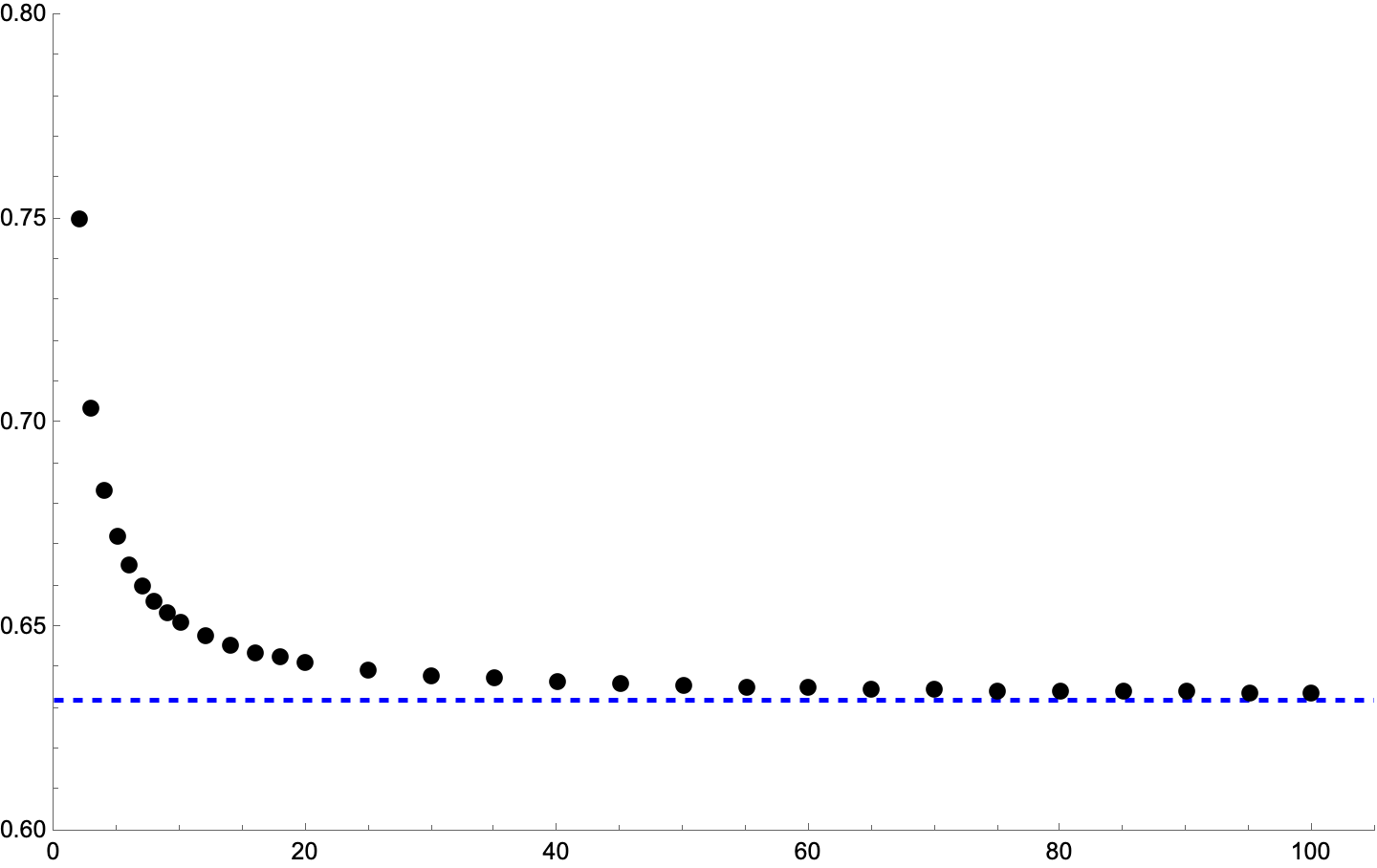More than 100% pregnant
May 9, 2024 at 11:21 PM by Dr. Drang
Kieran Healy tweeted out a gem earlier this evening:
Yes, Professor Huberman, a probability of 120% is indeed “a different thing altogether.”1
While I find it fascinating that someone can run through an argument that clearly proves they are wrong and continue along as if they hadn’t, I don’t have any expertise in psychology, so I won’t try to explain it.
I do, however, have some expertise in probability, and Huberman is dancing around the edge of one of my favorite problems: If there’s a 1 in n chance of something happening in one try, what’s the probability of it happening in n tries?
Remarkably, the answer is not
It’s
The term in the parentheses is the probability of it not happening in a single trial. That term raised to the nth power is the probability of it not happening in n trials (assuming independence between trials). And subtracting that from 1 gives us the probability of it happening (at least once) in n trials.
What’s great about this problem is that you can make a pretty decent estimate of the answer without doing any calculations. The reason is
and so
Now, in the Huberman problem n is 5, which is not especially close to infinity, but luckily the convergence to the limit is pretty rapid.

I would have guessed the answer for was about 0.65; it’s actually 0.67. Not super accurate, but better than 1.
Update 10 May 2024 12:21 PM
John D. Cook also saw the Huberman clip and wrote a nice post this morning about how adding probabilities is a reasonably close approximation if both
- the base probability for a single trial is small; and
- the number of trials is small.
Absolutely true, but not as much fun as a solution that ends up with Euler’s constant popping up out of nowhere.
